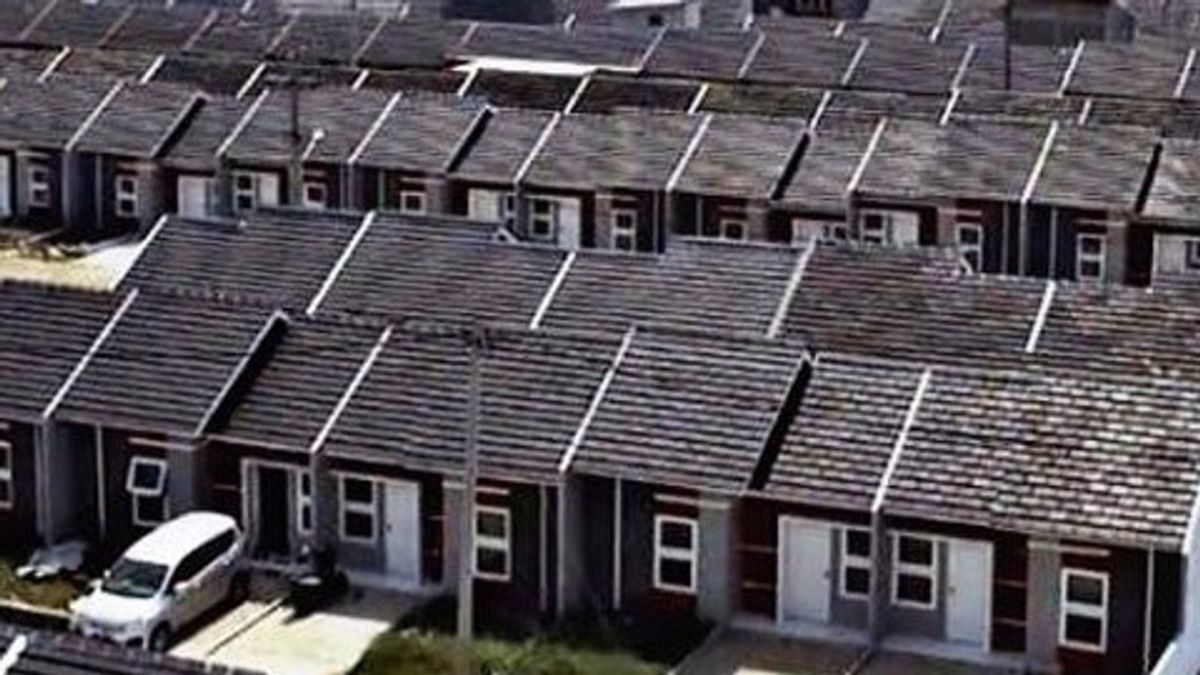JAKARTA - President Joko Widodo issued Government Regulation (PP) Number 25 of 2020 concerning the Implementation of Public Housing Savings (Tapera). In this regulation, all workers are required to take part in the Tapera program. However, only those with a maximum income of IDR 8 million can apply for a house purchase.
Under Article 7 PP 25/2020, BP Tapera not only manages housing funds for civil servants (PNS), but also all companies.
BP Tapera participants are candidates for civil servants, state civil servants (ASN), soldiers and students of the Indonesian National Army (TNI), the Indonesian National Police (Polri), state officials, workers in State-Owned Enterprises (BUMN), Regional Owned Enterprises ( BUMD), Village-Owned Enterprises, private companies, and any workers who receive wages.
Commissioner for the Public Housing Savings Management Agency (BP Tapera) Adi Setianto said there was a wage limit as a condition for low-income people (MBR) who wanted to buy a house through the Tapera program.
The condition, said Adi, is that participants with a maximum income of Rp. 8 million and do not yet own a house are entitled to apply for housing financing benefits at low interest rates.
"You can buy a house using the KPR scheme based on priorities to be determined by BP Tapera in accordance with the criteria stated in the PP on the Implementation of the Tapera," said Ari, through a written statement received by VOI, in Jakarta, Thursday, June 4.
Furthermore, Adi said, Tapera program participants could also take advantage of the financing to build houses on their own land or carry out renovations. This financing benefit can be submitted by participants who meet the criteria after one year of membership through various choices of banks and other financing institutions.
"Tapera provides financing flexibility with the principle of a credit ceiling which is set according to the minimum standard of livable houses," he said.
Article 15 paragraph 1 of PP 25/2020 explains, the amount of participant savings is set at 3 percent of the salary or wages for worker participants and income for participants who are self-employed.
"It is borne jointly by the Employer of 0.5 percent and the Worker of 2.5 percent. The basis of calculation for determining the salary / wages is set the same as for other social security programs, namely a maximum of IDR 12 million," he explained.
Adi explained that the participant's savings will be managed and invested by BP Tapera in a transparent manner in collaboration with the Indonesian Central Securities Depository (KSEI), the Custodian Bank, and investment managers. Participants can monitor the results of their savings management at any time through various information channels provided by BP Tapera and KSEI. At the end of the membership period, each participant can take the savings along with the fertilization results.
The presence of Tapera through Law Number 4 of 2016 is the government's effort to complement the National Social Security System (SJSN) as mandated by Law 01/2011 concerning Housing and Settlement Areas.
The ratification of PP 25/2020 becomes the basis for BP Tapera to operate immediately with the aim of raising and providing low-cost, long-term sustainable funds for financing decent and affordable housing for participants.
"Programs similar to Tapera are also commonly implemented in various countries, such as Singapore, Malaysia, China, India and South Korea," Adi explained.
The Tapera Program will be implemented in 2021The implementation of the community housing savings (Tapera) will be implemented in stages starting in 2021. The first phase in 2021, the obligation of the Tapera dues will apply to civil servants, police and soldiers. The second stage, the contribution obligation applies to BUMN employees and the last is private companies and independent participants.
With the existence of this PP, the one million house program of which 79 percent is prioritized for the construction of low-income housing and the remaining 21 percent is for the construction of non-MBR houses, can be realized.
"In the same year (2021), the government will also transfer the FLPP Fund to the Tapera Fund in accordance with the mandate of the PP for the Implementation of the Tapera," he said.
It is hoped that the Tapera program can solve the housing backlog problem and become a driving factor for the growth of the housing sector. In the end, this program will also encourage economic growth in Indonesia through the multiplier-effect of housing development and job creation.
The English, Chinese, Japanese, Arabic, and French versions are automatically generated by the AI. So there may still be inaccuracies in translating, please always see Indonesian as our main language. (system supported by DigitalSiber.id)









